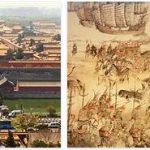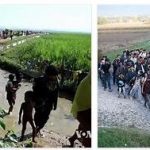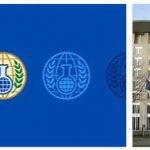Corruption is being called a global evil. Residents are deprived of the right to equal offers and services, and development assistance funds do not emerge where they are needed. But what do we really mean by corruption? And is corruption the reason why some countries are poor?
- What exactly is corruption?
- What are the different forms?
- Is it possible to measure corruption?
- Is corruption just a curse for developing countries?
Every quarter of a year, we expect trillions of dollars to be withheld as a result of world-wide corruption. According to the UN and the OECD , about five percent of the world’s total GDP goes to lubrication and corruption.
“Corruption harms society and economic development and is one of the biggest obstacles to the development of poor countries,” the Ministry of Foreign Affairs wrote on its website. It is especially in Norwegian development policy that corruption receives a great deal of attention, and therefore the fight against corruption is one of four cross-cutting considerations when Norway distributes development aid funds. Since development aid in itself can be a source of corruption, this means that the risk of corruption must always be assessed in projects and activities that are financed by Norway. Avoiding corruption in recipient countries has nevertheless proved to be difficult, and Norway’s work with anti-corruption in other countries has been given a high grade by the Office of the Auditor General .
The fight against corruption is not just a cross-cutting focus for the Norwegian state. It is also high on the global agenda of problems we want to tackle to ensure development and welfare. Because the consequences of corruption are seen as very serious, the UN has included anti-corruption as a sub-goal in the sustainability goals.
2: A global fight against corruption
Corruption takes various forms in both politics and economics, including in the global North. We hear about election campaign financing, favoring people for public positions, gifts and travel to public officials, dubious external business collaborations and about money disappearing into tax havens . Often this is not directly referred to as corruption here at home, but it is about many of the same actions that are ravaging developing countries.
On the other hand, we often see that the implications of corruption run deeper in developing countries due to scarce resources. Corruption maintains weak institutions, leads to low trust in the authorities and often flourishes where there is low legal protection. In addition to the fact that this is very unfortunate in state-building processes, it often leads to foreign investors turning in the door. Corruption in public investment and infrastructure has also proved life-threatening. Among other things, we have seen that buildings do not stand up to proper regulations and collapse because physical or financial resources have disappeared along the way.
Norway has one of the strictest anti-corruption laws in the world and has zero tolerance for this in the development assistance context. In practice, this means that Norway stops aid funds and demands legal action if corruption is discovered among Norwegian projects in recipient countries . But even though not all countries follow the same strict model as Norway, there is a kind of international agreement that corruption is often high in low-income countries – something that is very expensive. In Afghanistan, it has been found that huge sums of American aid that were to build up the country have ended up in the pockets of individuals. A US report has revealed that the various contributions that have been made without sufficient control have contributed to systemic corruption . In Afghanistan, Norway has also been a significant contributor.
3: Corruption, what does it mean?
Transparency International refers to corruption as “abuse of power in senior positions for personal gain”. This definition includes both the private and public sectors. At the same time, it includes unethical acts that are clearly illegal under local law.
According to foodanddrinkjournal, corruption is discussed in countless contexts, but one seldom goes deep into what it actually means and how it has a direct connection with low development. If anti-corruption is only used as a buzzword in development aid contexts, and we avoid understanding how the practice behaves in the society in question, it has little to do with it. It is rather important to be aware that corruption can exist in many different forms both within and outside the definition above. Simply understood, one can distinguish between three different levels:
- Random:For example, when performed by individual government officials.
- Institutional:When it comes to general corruption within a specific ministry or institution.
- Systemic:When corruption has become a societal norm and is accepted as a legitimate means every day. It can be about whole systems and processes that are exploited by corrupt servants or groups, something that means that there are few other alternatives than accepting the practice.
In addition, a distinction can be made between degrees of corruption:
- Small-scale corruption:Lower sum or less serious incidents where officials abuse their power, accept gifts, etc.
- Gross corruption:More serious incidents, such as larger sums under the table, serious lubrication and payments that can be traced to companies or individuals at the top level.
One can also divide up by direct and indirect corruption. The former means that corruption can provide direct and immediate benefits after actions, such as smearing or exploitation of official information. The latter is about corruption taking place indirectly, by promising (unreasonable) addition or promotion, goods and services at reduced prices or by securing contracts with certain companies.









